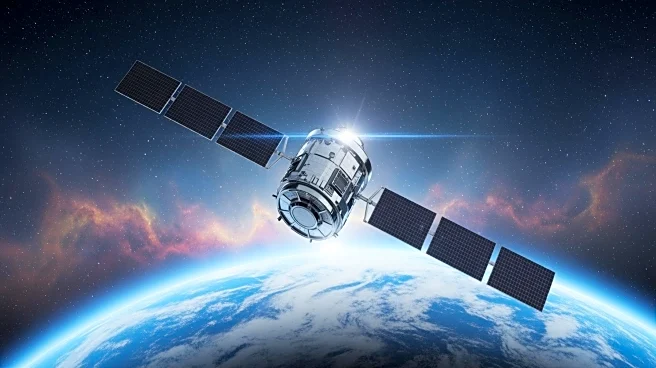What's Happening?
Airbus, Thales, and Leonardo, three major European aerospace companies, have signed a Memorandum of Understanding (MoU) to merge their space divisions. This strategic move aims to enhance their competitiveness
in the global market, particularly against industry leader SpaceX. The new venture, which is expected to be operational by 2027, will be led by Airbus with a 35% stake, while Thales and Leonardo will each hold 32.5%. The merger is projected to employ around 25,000 people and generate annual revenues of approximately €6.5 billion. Despite the merger's potential to reshape the European space industry, venture capitalists believe that startups will remain largely unaffected in the short term. They argue that the merger will not immediately transform the companies into more dynamic entities, allowing startups to continue thriving in niche markets.
Why It's Important?
The merger of these European aerospace giants is significant as it represents a major consolidation in the space industry, potentially altering the competitive landscape. While the merger aims to create a formidable competitor to SpaceX, there is skepticism about its ability to achieve this goal. The consolidation could impact government procurement processes, potentially favoring larger entities over startups. However, this also presents an opportunity for startups to fill gaps in the market if European governments embrace open competition. The outcome of this merger could influence the future of innovation and industrial capability in Europe's space sector, affecting stakeholders ranging from government agencies to private investors.
What's Next?
The newly formed venture must navigate regulatory approvals to ensure compliance with European competition laws. The companies involved will need to demonstrate that the merger does not create anti-competitive practices. Additionally, the venture will have to prove its ability to compete on a global scale, particularly against established players like SpaceX. The European startup ecosystem will be watching closely to see how the merger affects market dynamics and government procurement strategies. The success of this merger could hinge on whether European governments prioritize innovation and competition over traditional industrial policies.
Beyond the Headlines
The merger raises questions about the future of innovation in the European space industry. If the new venture focuses on large government contracts, startups may find it challenging to secure significant roles in the industry. However, if the merger leads to increased competition and open markets, it could drive innovation and efficiency. The consolidation also highlights the ongoing debate about the role of large corporations versus startups in driving technological advancements. The outcome of this merger could set a precedent for future industry consolidations and the balance between large-scale operations and agile, innovative startups.









